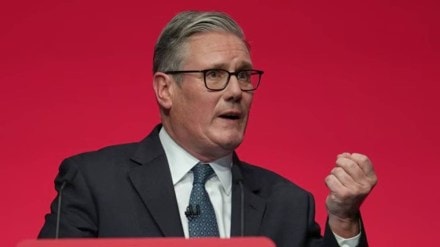British Prime Minister Keir Starmer said on Wednesday that the UK wants the free trade agreement (FTA), signed with India in July, to be implemented as early as humanly possible so that benefits from the deal can start flowing sooner.
Though the Comprehensive Economic and Trade Agreement (CETA) has been sealed after three years of intense negotiations, it is still to be ratified by both sides. In the UK, the ratification process involves approval of the Parliament, while in India the process is simpler and just needs to pass through the cabinet.
UK ratification may take a year
According to estimates, the ratification process in the UK could take up to a year. Starmer said he has instructed his team to move quickly.
The CETA, once it comes into force, will allow 99% of the Indian exports to enter the UK duty free and cover almost 100% of the trade in value terms. For the UK, India will reduce or eliminate duties on 90% of the tariff lines that account for 92% of the imports.
Through the agreement, the target is to double bilateral trade — both goods and services — to $120 billion by 2030 from $56.9 billion in 2024-25.
Addressing business leaders during an interaction in Mumbai, Starmer said, “This is the biggest trade mission that the United Kingdom has ever sent to India.”
He also said, “It’s (CETA) the biggest deal we’ve struck since we left the European Union. I think it’s also the biggest deal that India has ever struck, so it’s hugely important.”
UK PM first visit to India
The UK Prime Minister — on his first visit to India — is leading a 125 members-strong delegation of businessmen, industry groups and representatives of universities from the UK. He landed in Mumbai on Wednesday and an official meeting with Prime Minister Narendra Modi will be held in the city Thursday. Later, Modi and Starmer will address India-UK CEO’s Forum and Global Fintech Fest.
On the sidelines of Starmer’s engagements, commerce and industry minister Piyush Goyal and UK Secretary of State for Business and Trade Peter Kyle held bilateral talks in Mumbai.
During the talks, both ministers agreed to reposition the Joint Economic and Trade Committee (JETCO) to oversee the implementation and delivery of CETA.
Goyal and Kyle also discussed ways to maximise its benefits through regulatory cooperation, addressing non-tariff barriers, and promoting supply chain integration.
Ahead of the bilateral meeting, a series of sectoral round-table talks were held across priority sectors including advanced manufacturing, consumer goods, food and drink, science, technology and innovation, construction, infrastructure and clean energy, and financial, professional and business service (including IT/ITeS, education, and engineering).
These dialogues brought together leading voices from Indian and UK industry and provided valuable insights to guide implementation, a statement of commerce and industry ministry said.
